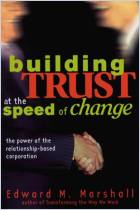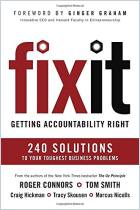
Accountability
Freedom and Responsibility without Control
Read or listen offline
Amazon KindleRecommendation
This book falls into the genre of business parables. Its optimistic theme is that freedom is a better management principle than control. Instead of relying on real-life examples, which might be hard to come by, the authors present a fictitious scenario in which wise older counselors impart the wisdom of freedom to young but amenable auditors. With freedom, workplace antagonisms and conflicts no longer fester. Employees cast aside their suspicions, differences, distrusts and other fruits of oppressive control, cooperating gladly and willingly in an atmosphere of near-utopian productivity. The real reward isn’t corporate Eden, but personal accountability, freely given by employees who innovate and work hard because they are trusted. getAbstract.com trusts that you’ll know just how much freedom to apply before you create chaos instead of conscientiousness.
Summary
About the Authors
Rob Lebow is chairman of the Lebow Company and co-chairman of Tomorrow’s Workplace, Inc., where corporate trainer Randy Spitzer is executive vice president. Lebow is an international speaker and the author of A Journey into the Heroic Environment.

















Comment on this summary or Iniciar a Discussão